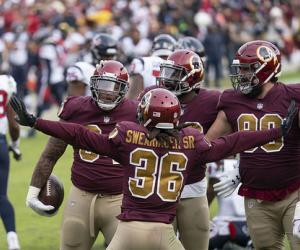DC’s Intralot ‘sole-sourcing’ move clears first hurdle

Intralot is a step closer to delivering sports betting in Washington DC after lawmakers voted narrowly to allow the DC Lottery to negotiate a new contract with its existing supplier and bypass the standard procurement process.
The Council of the District of Columbia voted 7-6 in favour of the controversial Sports Wagering Procurement Practices Reform Exemption Act of 2019, although the law still requires approval at a second reading scheduled for February 19.
During the session yesterday (February 5), two councilmembers – David Grosso and Elissa Silverman – spoke out against the so-called “sole-sourcing” move, which would hand an effective mobile wagering monopoly to the DC Lottery's Intralot-powered platform without opening up the procurement process to competitors such as Scientific Games and IGT.
Grosso, one of two councilmembers to vote in December against the original legislation to legalise sports betting in the district, said: “I fail to understand why this cannot be competitively bid through our traditional procurement process.”
Silverman failed in a bid to introduce an amendment to separate the sports betting and lottery services at a mark-up session for the Committee on Finance and Revenue last Wednesday after a public hearing two days earlier.
“I’m not convinced sole sourcing both sports betting and lottery at this time is the best policy decision, especially when we’re not only getting into the sports betting business, we’re actually modernising our lottery at the same time,” she said.
However, councilmember Jack Evans, who submitted the original bill in September, noted yesterday that the public hearing had produced 12 speakers in favour of the procurement process exemption, versus only three against. Two others “did not have a position”.
He reiterated the opinion of DC Council chief financial officer Jeff DeWitt, who has warned that the state could lose $60.9m (£47m/€54m) in sports wagering revenue between 2019 and 2022 due to delays caused by the launch of a new procurement process.
“He would never support sole-sourcing – except in this case,” Evans said of DeWitt. “It came down to money. If we do not move forward… […] … we may save $1m on the contract, but lose $60m in revenue as it would take at least 27 months or longer to get a new contract in place.”
Mayor Muriel Bowser approved the Sports Wagering Lottery Amendment Act on January 23, just over a month after the DC Council voted overwhelmingly in favour of the legislation. Following Bowser’s approval, the act is undergoing a 60-day Congressional review.
Councilmember Evans previously said that sports betting could be launched before the start of the Major League Baseball season in April. However, it is now thought that launching in the fall is more realistic, ahead of the start of the 2019-20 NFL American football, NHL ice hockey and NBA basketball seasons.
The Sports Wagering Lottery Amendment Act will permit retail and digital sports betting in the capital, which has a population of almost 700,000 and teams in each of the major US sports leagues.
While the DC Lottery app would be the only mobile betting platform allowed across almost all of DC, a number of designated facilities, such as the city's major sports arenas, would be able to sign their own partnerships to offer their mobile services to customers within a two-block exclusivity zone, inside of which no competition is allowed.
The four stadia that can apply for the Class A licences and offer betting are the 82,000-capacity FedEx Field, the 41,000-capacity Nationals Park, and Capital One Arena and Audi Field which can both hold just over 20,000 fans.
Image: Keith Allison
